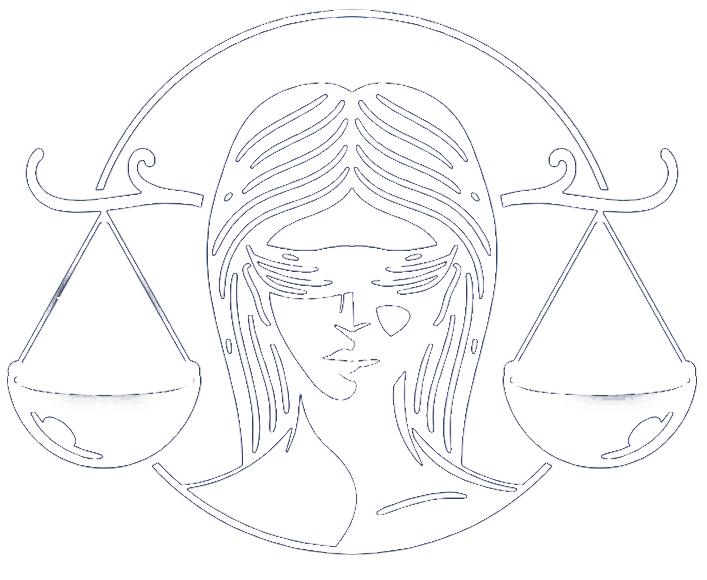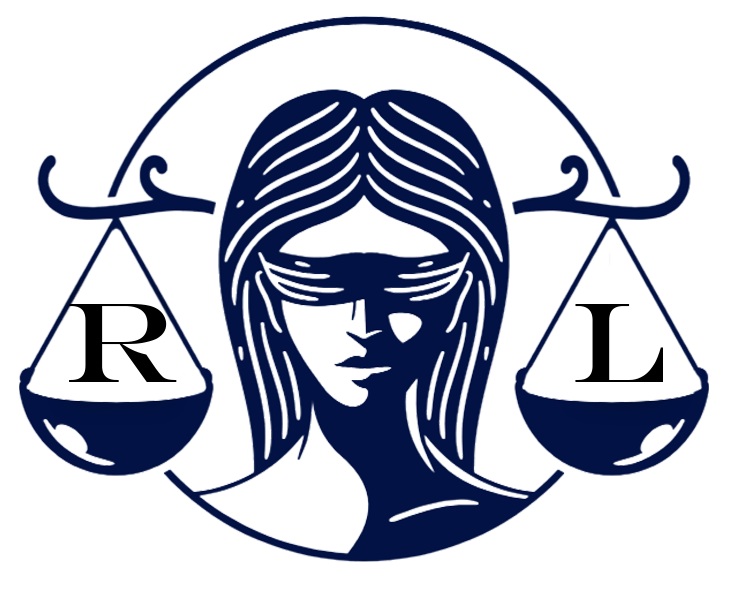What does it mean when a lawyer says, “objection,” in court?
If you’ve ever watched a legal drama or true crime doc, you’ve definitely seen the moment — a lawyer jumps up during the opposing attorney’s line of questioning and says, “Objection!” But what does that actually mean in real court? Is it just for dramatic effect, or does it have a real purpose? What are objections?

In this post, I’ll be explaining what an objection means in court, why attorneys object during trial, and the different types of legal objections you’ll hear in the courtroom. Whether you’re a law student, a legal nerd, or just someone who wants to understand how court objections work, this is your complete guide to what’s really going on. I’m writing it primarily so I can understand better myself.
So, what are objections, and what do they mean in court?
During trials, objections are used to call out improper questions or evidence. They’re the technical call outs of a “foul” in a way. There are many rules and regulations (called the rules of evidence and procedure) and methods of asking questions during a trial. You cannot ask whatever you want. You cannot ask in any form you want.
What does objection mean in court?
An “objection” in court is when an attorney interrupts the trial to challenge something they believe is improper under the rules of evidence or procedure — like an unfair question or inadmissible evidence.
When the objection is found to be an accurate call out of improper procedure, generally that piece of evidence or testimony is thrown out of the case.

What Kinds of Objections Are There?
There are a multitude of reasons as to why an objection can be called in different situations. Whether it’s during testimony or presenting evidence, the rules must be followed. Below are some common courtroom objections. A list of legal objections:
- Relevance
- What it means: The evidence or question does not relate to the case or help prove/disprove a fact at issue.
- When to use it: When the attorney introduces something that doesn’t move the case forward in any legal way.
- Hearsay
- What it means: A statement made out of court being offered to prove the truth of the matter asserted.
- When to use it: When a witness repeats something someone else said outside the courtroom.
- Leading Question
- What it means: A question that suggests its own answer.
- When to use it: During direct examination, when the questioning attorney is improperly guiding the witness.
- NOTE: This is probably a type of questioning you’ve seen many, many times. “You were at the house that night, right?” – This is NOT allowed during direct examination. This IS allowed during cross examination.
During cross-examination, you may use leading questions. Cross-examination is when you are questioning the other side’s witness. This isn’t allowed during direct examination, because your witness is supposed to tell their story in their own words. Additionally, you may use leading questions when your own witness is hostile or uncooperative – OR, if you’re laying foundational questions.
- Calls for Speculation
- What it means: The witness is asked to guess about something they don’t have direct knowledge of.
- When to use it: When a witness is asked to assume facts or give opinions outside their knowledge.
- Lack of Foundation
- What it means: The necessary groundwork hasn’t been laid to admit testimony or evidence.
- When to use it: When a party jumps straight to a conclusion or introduces evidence without proper setup.
- Improper Character Evidence
- What it means: Evidence meant to show someone acted a certain way because of their character, not because it’s relevant to the current case.
- When to use it: When trying to admit character evidence to show action in conformity with that character.
- Assumes Facts Not in Evidence
- What it means: The question includes unproven facts as if they were already established.
- When to use it: When a question presumes something not yet proven during trial.
- Compound Question
- What it means: The question contains two or more separate questions.
- When to use it: When the witness is asked to answer multiple questions at once, which could confuse.
- Example: “Isn’t it true that you went to the victim’s house and you also broke into the back window?” – This would be a problem because it could be true that you went to the victim’s house, but not that you broke into the back window.
- Asked and Answered
- What it means: The question has already been asked and the witness has answered it.
- When to use it: To stop repetitive questioning that’s already been addressed.
- Argumentative
- What it means: The question is not actually seeking information but rather arguing with the witness.
- When to use it: When the attorney is being combative, trying to badger the witness.
- Vague or Ambiguous
- What it means: The question is unclear or could be misunderstood.
- When to use it: When the wording is confusing or open to multiple interpretations.
- Misstates the Evidence
- What it means: The attorney’s question distorts or incorrectly references prior testimony or evidence.
- When to use it: When an attorney inaccurately paraphrases something already presented.
- Non-Responsive
- What it means: The witness isn’t answering the question asked.
- When to use it: Usually during cross-examination, when the witness gives an evasive or unrelated answer.
- Lack of Personal Knowledge
- What it means: The witness has no firsthand knowledge about what they’re testifying to.
- When to use it: When a witness speculates or speaks on something they didn’t personally see or experience.
- Calls for a Legal Conclusion
- What it means: The question requires the witness to give a conclusion that should be reserved for the judge or jury.
- When to use it: When an attorney asks a witness to interpret the law or offer legal opinions.
- NOTE: expert witnesses can give opinions within their field.
- Cumulative
- What it means: The evidence or testimony is needlessly repetitive.
- When to use it: When something has already been shown or proven, and further repetition wastes time.
- Improper Impeachment
- What it means: The attempt to discredit the witness doesn’t follow the rules or lacks foundation.
- When to use it: When an attorney tries to attack a witness’s credibility unfairly or without proper basis.
- Badgering the Witness
- What it means: The attorney is harassing or overly aggressive toward the witness.
- When to use it: When the questioning becomes hostile or repetitive to intimidate the witness.
What Happens When an Objection Happens in Court?
There are a variety of outcomes that can happen when an attorney makes an objection, but the most common two that you’ll see or hear are either “overruled” or “sustained.” When an objection happens, since it’s about the technical aspects of the case, it is up to the judge to make the determination of the validity of the objection.

So, attorney A is questioning a witness. Attorney B stands up and objects. The judge makes the determination. The trial proceeds thereafter.
What Does It Mean When a Judge Says Overruled or Sustained?
These are certainly the most common two you’ll hear. So what is the sustained vs overruled meaning?
Overruled means that the judge disagrees with the objection. The question stands or the evidence stands. We move on.
Sustained means that the judge agrees with the objection. The question gets tossed out and the witness is not allowed to answer. In those situations, the judge may direct the jury to disregard that statement or “strike that from the record.”
What Does “Strike That From the Record” Actually Mean?
This one’s classic courtroom lingo. When a judge says “Strike that from the record,” they’re basically saying, “Pretend that didn’t happen.” It usually follows a sustained objection, especially if a witness says something they weren’t supposed to.
The idea is that it gets erased from the official transcript, and the jury is told to ignore it completely — like it never existed. Of course, once something is said out loud, good luck un-hearing it. But legally speaking, it’s gone.
It’s pretty silly seeing as if it were actually an important piece, the jury cannot forget it. That being said, this is a technique that attorneys can use to sway a trial. If it’s egregious enough, in rare cases, it could lead to a mistrial
Additionally, the judge may ask for further clarification to the objection or ask for a side bar.
What is a Sidebar in a Court Trial?
A sidebar is when the lawyers approach the judge for a little off-the-record chat — usually about something that came up unexpectedly or something too sensitive to discuss in front of the jury. The judge will usually say something like, “Counsel, sidebar,” and the attorneys walk up to the bench while everyone else awkwardly waits. Sometimes there’s white noise playing to keep the jury from hearing what’s being said. It’s basically like a mini, quiet strategy meeting between the judge and lawyers to hash out an issue without accidentally messing up the trial.
When Should You Object? (And When Shouldn’t You?)
Just because you CAN object, doesn’t mean you SHOULD. At the end of the day, you’re trying to convince the jury of the outcome you want. If you’re being a nuisance and objecting to everything, regardless of its outcome on the trial – you’re going to come across as a problem. The jury will not like you personally, and that can come across in the final verdict. Again, it’s not when can a lawyer object, necessarily, but when should a lawyer object.
When Should You Object:
- To Protect the Record – Even if you know the judge will overrule you, objecting puts your complaint on the record. That’s key if you want to raise the issue on appeal later.
- To Stop Harmful Testimony – If the opposing witness is about to drop something irrelevant, prejudicial, or just plain improper, you jump in with that objection to shut it down before it lands.
- To Control the Narrative – Objections can disrupt the flow of a damaging line of questioning. It slows things down and throws off the other side’s rhythm. This is the one to be careful with as it can quickly lead the jury to be unfavorable toward you.
- To Assert Dominance (Strategically) – Yup, courtroom chess. Sometimes you object just to keep the other attorney on their toes or to show the jury you’re sharp and fighting for your side.
When Shouldn’t You Object:
- When the Answer Helps You – Even if the question was shaky, if the answer helps your case, you might just let it slide. No need to shut down free help.
- When It Looks Petty – Constantly objecting over minor things can annoy the jury and make you seem desperate.
- If It Draws More Attention to Something – If a witness blurts something out and it’s not too damaging, objecting might actually spotlight it. Sometimes it’s better to let it fade in the background.
- You’re Losing the Judge – If the judge is already giving you side-eye for too many interruptions, it might be wise to sit tight and wait for a more important moment.
Pic below courtesy of the New York Times

Summary
Understanding objections in court gives you a behind-the-scenes look at how trials actually work. They’re not just dramatic interruptions — they’re essential tools attorneys use to keep the case on track, protect their clients, and make sure everything follows the rules. Whether it’s calling out hearsay, shutting down speculation, or pushing back against improper questions, objections are all about strategy and timing.
Now that you’ve seen the different types of objections, what they mean, and when they’re used, you can follow a courtroom scene — real or fictional — with a whole new perspective. You’ll know exactly what it means when someone yells “Objection!” and why the judge says “sustained” or “overruled.” At the end of the day, objections are the language of courtroom control — and now, you speak it.

